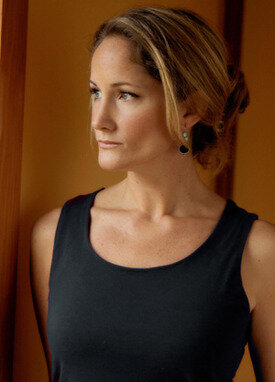Writers on Wednesday--Leah Stewart
This week I have the musings of Leah Stewart on the process and craft, the delicate art form, really which is editing. Since I'm up to my eyebrows in revisions and spent the better part of this afternoon helping my senior student reshape her flash fiction, this couldn't be more appropriate. Enjoy!
In my experience the more convinced writing students are that not a word of their work should be changed, the worse their writing is. That resistance to editing is usually a sure sign of an amateur, someone fervently convinced that writing is about the pure rush of inspiration and expression, and not about the hard work of learning a craft, of taking editorial advice, of revising and revising and revising. How to explain, then, the much-admired and well-known writer who told me that when he got the marked-up manuscript of his last book from his editor, he sent it back in the box it came in, saying he couldn’t bear to have it in his house? They published it exactly as he’d written it, to much acclaim.
It’s worth noting that he himself said that, had he not been too “raw” to look at his editor’s suggestions, he might have been able to make it a better book. Still, even as a young writer, he chose not to publish a piece rather than take the editor’s suggestions, a choice it’s hard for me to imagine making, especially at the beginning of a career. When my first agent sent me the marked-up manuscript of my first book, I called a writer friend in despair over the changes he wanted me to make. My friend said, “Well, you know you don’t have to do everything he says.” No, I didn’t know that. I was an unpublished writer. He was an established agent willing to take me on. The notion that I didn’t have to do everything he said had honestly never crossed my mind.
In the end, thanks to my friend, I didn’t make every change my agent suggested, especially on the sentence level. But I did make at least one rather significant change I still regret, even now, ten years after the book was published. I went against my instinct to make that change, because he insisted on it, because he seemed so sure. My own convictions about my work waver. I have faith in myself as a writer, but not always in the writing I produce. There’s incontrovertible evidence, after all, that even the best writers write bad books. And then there are those supremely confident students as proof of the lack of relationship between certainty and skill.
My books are better for being edited. When I think about the changes I made to my second and third books, I feel no regret, only gratitude to my thoughtful, conscientious editor, who helped me make the books so much better than they were. I’m lucky to work with an editor like her, someone who offers feedback on plot points and lines of dialogue and everything in between, which not all of them do these days. There are times when I do exactly what she suggests, and other times when I balk. Some of her ideas might work for the novel at hand, but not for the writer I am. When I don’t want to make the change she suggests, we talk until we determine why she’s suggesting it. If we can pinpoint the problem, most of the time we can come up with a solution I can execute.
My better students, the ones so riddled with self-doubt they might actually become writers, sometimes come to me after workshop confused by their classmates’ contradictory assertions. They ask how they’re supposed to know which comments to value, which to ignore, where your own convictions about your work should give way to other peoples’. My advice is vague and clichéd, if accurate: Go with your gut. You have to doubt yourself to get better, but you have to have faith to write at all.
Did the writer who sent his book back to the editor act out of faith or doubt? I don’t know. Some writers are high-wire artists; some are bricklayers. He’s a high-wire artist, and maybe having reached the other side of the wire he couldn’t bear to tempt fate by stepping back on.
I wish sometimes that writing was like math, precise and indisputable, instead of the messy, subjective thing that it is. I’m a believer in pragmatic advice, of the “move this scene here” variety. But there are places where technique alone fails you. Writing well is not math but alchemy, a disputed and mysterious science, a chemistry of faith and doubt.
* *** *
 Bio...
Bio...
Leah Stewart is the author of the novels Body of a Girl, The Myth of You and Me, and Husband and Wife. She teaches in the creative writing program at the University of Cincinnati.
